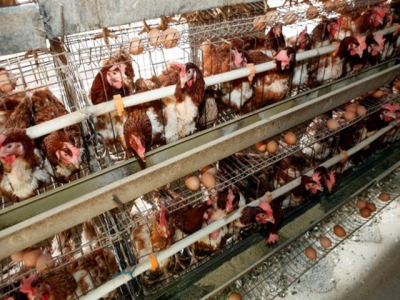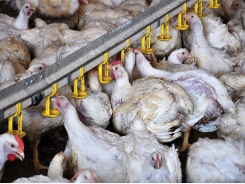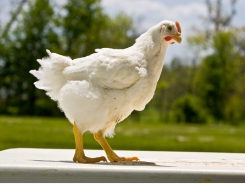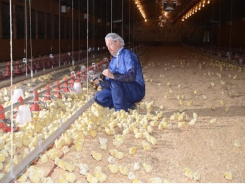Reasons for buying animal welfare friendly eggs researched

Age, income, education, occupation and religion all have an impact on willingness to pay for animal welfare friendly eggs, according to research on consumer buying habits in Taiwan.
Taiwan, according to its Council of Agriculture, has 95% of eggs produced using battery cages. - Photo: Henk Riswick
Respondents associated with traditional religions such as Buddhism and Taoism were willing to pay more than those who were not linked to those faiths.
The results also showed that respondents were willing to pay for animal welfare products because of food safety concerns. The research, carried out by Professor Yu-Chen Yang, assistant professor at the Department of Applied Economics, National Chung-Hsing University, looked at consumer preferences among Taiwanese residents.
95% of eggs produced using battery cages
Taiwan, according to its Council of Agriculture, has 95% of eggs produced using battery cages and it is generally recognised that farmers add a variety of antibiotics to animal feed in order to prevent disease. Other practices, according to the paper, include fasting birds to force them to moult and metabolise in order to continue laying eggs.
As a result, the Council of Agriculture has – in order to promote animal welfare practices – promulgated the Animal-friendly Egg Production System Definition and Guidelines, to serve as a reference for the egg industry.
Animal welfare labels
In addition, two animal welfare labels have been developed for ensuring the market segmentation of animal welfare eggs and traditional battery cage eggs. As adopting animal welfare production is voluntary in the country and increases costs, the researchers felt it was important to explore how much consumer want to pay for the welfare friendly product in order to determine whether the production method was economically viable.
Consumers’ willingness to pay for the welfare friendly eggs
The goal of the research was to investigate consumers’ willingness to pay for the welfare friendly eggs and factors that affect such actions. The survey included 322 completed questionnaires, which looked at purchasing habits and knowledge of eggs, purchasing concerns, knowledge of hen’s behaviour and the system involved in production.
The results showed the following:
- Half were aware of different types of rearing methods, such as batter cages, floor rearing, free range and organic
- Less than a quarter could identify which rearing method the eggs they had purchased was applied
- More than nine in ten respondents agreed that the rearing method for egg products should be clearly labelled.
- Just over 27% were not acquainted with natural behaviours, such as nesting, foraging, preening and dust bathing
- Half had heard of animal welfare issues
Younger people less willing to pay more
Empirical results showed that respondents who were between 25-34 were significantly less willing to pay than respondents in a reference group, due to younger people in Taiwan earning less than older workers. Residents in the second highest income bracket however were also not willing to pay significantly more than the reference group.
Residents with higher education levels, such as a college degree or graduated degree, were more willing to pay extra than those who were less educated.
In terms of policy implications, the report said that despite the expressed consumer desire to pay a premium for ethically farmed egg products, in reality, they were not prepared to pay much of a premium.
Disconnected from animal welfare
“The reason for this is that consumers feel disconnected from animal welfare and that it is not their personal responsibility. This also implies a possible result of free riding, since consumers deem that the attributes of animal welfare products place them in the domain of being public goods.”
Pathways to getting more consumers to buy welfare friendly eggs, could include promoting the concept to religious organisations, which would also help people feel more connected.
Có thể bạn quan tâm
Phần mềm

Phối trộn thức ăn chăn nuôi

Pha dung dịch thủy canh

Định mức cho tôm ăn

Phối trộn phân bón NPK

Xác định tỷ lệ tôm sống

Chuyển đổi đơn vị phân bón

Xác định công suất sục khí

Chuyển đổi đơn vị tôm

Tính diện tích nhà kính

Tính thể tích ao hồ




 Developing nations need robust support to reduce medicine…
Developing nations need robust support to reduce medicine…  How to tell if chicks are getting what…
How to tell if chicks are getting what…